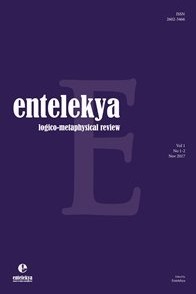Aristotle on Phantasia
Aristotle on Phantasia
Born as φαντασία (phantasia) in Greek philosophy, the concept of imagination that today we understand from has a different meaning and contains different functions. This study attempts to reveal the conceptual contents and functions by examining the conceptual transformation of the concept in Ancient Greece and Aristotle’s terminology and epistemological function. This study, which will examine the concept of imagination tries to reveal the conceptual content and functions, considering the birth of the concept in Ancient Greece, the terminology of Aristotle, and the contextual transformation of the epistemological function.
Keywords:
Aristotle, phantasia, imagination, On the Soul Ancient Greek philosophy,
___
- Aristoteles, İkinci Analitikler. Tr. trans. Hamdi Ragıp Atademir. İstanbul: Milli Eğitim Bakanlığı Yayınları, 1996.
- Aristoteles, Ruh Üzerine. Tr. trans. Zeki Özcan. Ankara: Sentez Yayıncılık, 2014.
- Aristoteles, Metafizik. Tr. trans. Y. Gurur Sev. İstanbul: Pinhan Yayıncılık, 2017.
- Dağtaşoğlu, Ahmet Emre. “Antik Yunan Felsefesi’nde ‘Fantasia’nın Epistemolojik Rolü.” FLSF: Felsefe ve Sosyal Bilimler Dergisi 17 (2014): 265-287.
- Platon, Sofist. Tr. trans. Ömer Naci Soykan. İstanbul: Pinhan Yayıncılık, 2015.
- Platon, Theaitetos. Tr. trans. Birdal Akar. Ankara: Bilgesu Yayıncılık, 2016.
- Portelli, John Peter. The Concept of Imagination in Aristotle and Avicenna. MA Dissertation. Montreal: McGill University, 1979.
- Scheiter, Krisanna M. “Images, Appearence and Phantasia in Aristotle.” Phronesis: A Journal for Ancient Philosophy 57 (2012): 251-278.
- Başlangıç: 2017
- Yayıncı: İlyas ALTUNER
